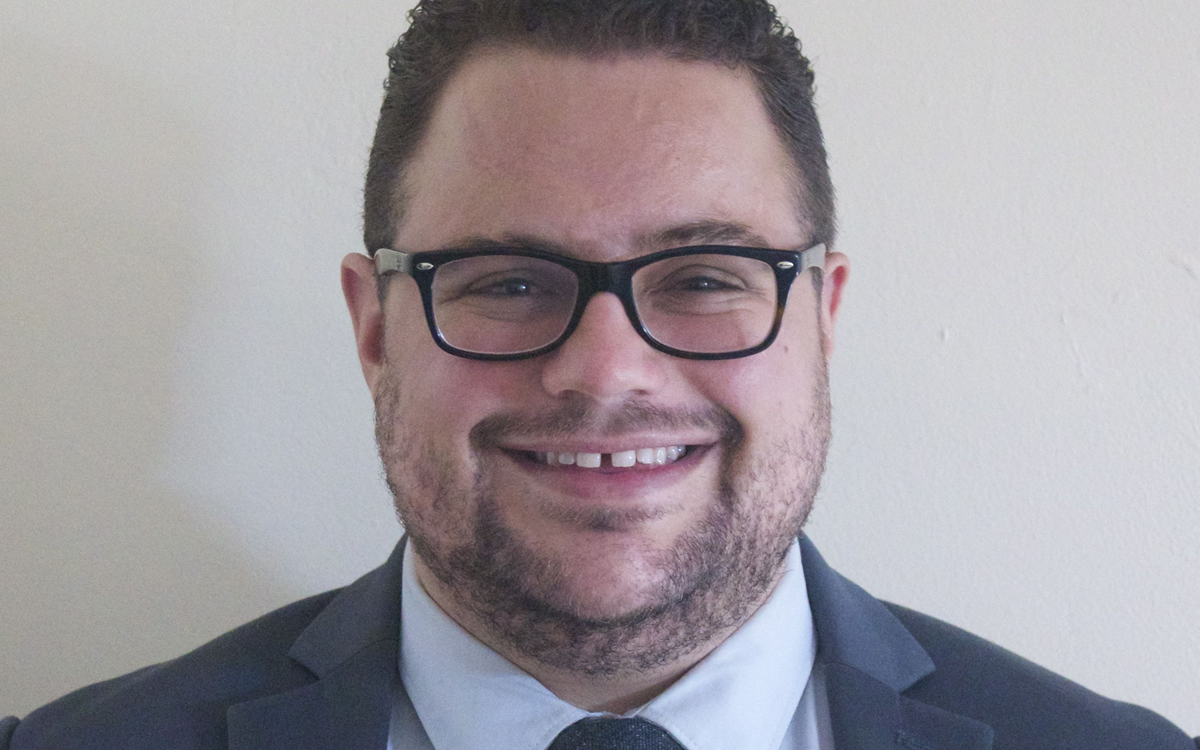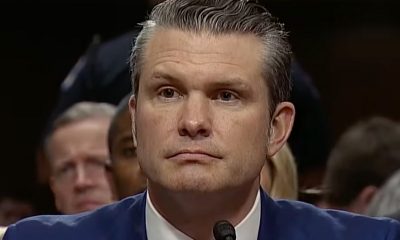National
Pentagon official: No ‘Don’t Ask’ report before Dec. 1
Senate panel questions Gen. Ham on study
A co-chair of the Pentagon’s “Don’t Ask, Don’t Tell” working group has said he doesn’t think an upcoming report on implementing repeal will be complete before the Dec. 1 deadline — despite requests from lawmakers and LGBT advocates to make the study available earlier.
Army Gen. Carter Ham, one of two co-chairs leading the Defense Department working group, made the remarks during his confirmation hearing on Thursday before the Senate Armed Services Committee. The four-star general has been nominated to become commander of U.S. Africa Command.
During the hearing, Senate Armed Services Committee Chair Carl Levin (D-Mich.) noted Ham said prior to his testimony he wasn’t authorized to discuss the content of the report at this time. The committee chair reiterated his commitment to hold hearings and hear testimony from Ham shortly after the working group provides the report to Defense Secretary Robert Gates.
Still, Levin said he had questions about the timing of the report and asked whether the Pentagon working group, which Ham co-chairs along with Pentagon general counsel Jeh Johnson, would be finished with its study before the Dec. 1 deadline.
Ham replied that he thinks “it will take until the first of December” for the Pentagon working group to complete its work because those crafting the report are still awaiting input from the military service secretaries and service chiefs.
“The key factor remaining for us in the review group is to receive the review and comment by the service chiefs and service secretaries, which is ongoing,” Ham said. “We anticipate their comments soon, Mr. Johnson and I will review those comments, make final adjustments to the report, which is currently in draft form and then deliver to the secretary of defense on 1 December.”
Asked by Levin whether the group could make “every effort” to make the report available before Dec. 1, Ham replied, “Yes sir, in consultation with the secretary’s office.”
On Monday, Sens. Joseph Lieberman (I-Conn.) and Susan Collins (R-Maine) sent a letter to the Pentagon asking for the release of the report “as soon as possible.” The Human Rights Campaign issued a similar statement on the report last week and argued that an early release of the report could influence fence-sitting senators who have yet to endorse “Don’t Ask, Don’t Tell” repeal.
Also during the hearing, Sen. John McCain (R-Ariz.), a strong opponent of “Don’t Ask, Don’t Tell” repeal and critic of the Pentagon report, asked questions suggesting the survey that was conducted as part of the working group’s efforts was biased in favor of repeal.
Over the summer, the Pentagon sent out 400,000 surveys to active duty service members to solicit their views on serving alongside openly gay troops in the U.S. military. According to a recent media report in the Washington Post, the survey found that more than 70 percent of respondents think the effect of ending “Don’t Ask, Don’t Tell” would be positive, mixed or nonexistent.
McCain asked whether 400,000 surveys were indeed sent out, which Ham confirmed, and then asked how many responses were received. Ham said the Pentagon group received a little more than 115,000 responses.
“Like 25 percent?” McCain continued, suggesting that the response rate was too low to consider the data valid.
But Ham corrected the Arizona senator and said the received responses made up 28 percent of the surveys sent out.
McCain also asked questions about the wording of the survey and suggested bias in favor of repeal was present here as well.
“Isn’t it true that the survey said in a preamble — said DOD is considering changes to the ‘Don’t Ask, Don’t Tell’ policy that quote ‘would allow gay and lesbian service members to serve in the military without risk of separation because of their sexual orientation,'” McCain said. “Is that true?”
Ham confirmed that this wording was indeed part of the preamble for the survey.
The content of recent media reports about the upcoming report was also discussed during the hearing. Lieberman asked whether the information revealed by the leaks was “just one part” of what the Pentagon group intended to do and inquired about other information that would emerge.
Ham responded by outlining the terms of reference for the report and said there were “two tasks.” One was to assess the impact of repeal on concerns such as battle effectiveness and recruitment, and the other was to develop a plan to implement an end to “Don’t Ask, Don’t Tell.”
The general noted the working group obtained information from service members through surveys, focus groups, an online inbox and town hall meetings. To obtain to views of gay service memebers currently in the armed forces without outing them under “Don’t Ask, Don’t Tell,” Ham said the working group established a “confidential conversation mechanism” through a third-party company.
“All in all, senator, we believe this is probably, as far as I could tell, the most comprehensive assessment of a personnel policy matter that the Department of Defense has conducted,” Ham concluded.
Lieberman said he agrees that the report is “very comprehensive” and “should inform the decision that Congress makes in voting.”
Sen. Jim Webb (D-Va.), who in May opposed a repeal amendment in committee, also praised the report during the hearing and emphasized it should guide congressional action on the issue.
“I think it’s important, if I may, to quote from what Sen. Lieberman just said,” Webb said. “He said this study ‘should inform the decision that the Congress makes in voting.’ We tend to forget that in our political haste here. This is a very important study for us, not simply to receive, but to examine and to discuss.”
A former Navy secretary, Webb noted he spent five years at the Pentagon and said he “can’t remember a study on this type of issue that has been done with this sort of care.”
“Not even having seen it or knowing the results, but I know the preparation that went into it,” Webb said. “So it’s going to be a very important study for us to look at and examine.”
U.S. Supreme Court
Supreme Court to hear Md. religious freedom case on Tuesday
Advocacy groups to rally outside during Mahmoud v. Taylor oral arguments

Activists on Tuesday will hold a rally in front of the U.S. Supreme Court as the justices hear oral arguments in a case that will determine whether schools are violating parents’ religious freedom by not letting them opt their children out of learning about LGBTQ-specific topics.
Mahmoud v. Taylor is a case out of Montgomery County about parents who wish to opt their children out of LGBTQ-themed lessons in public schools for religious reasons.
Montgomery County Public Schools, after initially allowing parents to opt their children out, changed the policy in March 2023.
The plaintiffs — Tamer Mahmoud, Enas Barakat, and other parents — argue “the storybooks were chosen to disrupt ‘cisnormativity’ and ‘either/or thinking’ among students.”
“The board’s own principals objected that the curriculum was ‘not appropriate for the intended age group,’ presented gender ideology as ‘fact,’ ‘sham[ed]’ students with contrary opinions, and was ‘dismissive of religious beliefs,’” according to the petition on the Supreme Court’s website.
The petition goes further, saying the parents are “not challenging the curriculum, but arguing that compelling their elementary-age children to participate in instruction contrary to their parents’ religious convictions violated the Free Exercise Clause. Construing Wisconsin v. Yoder, the 4th Circuit found no free-exercise burden because no one was forced ‘to change their religious beliefs or conduct.’”
The Coalition for Inclusive Schools and Communities, an organization that aims to bring together “advocates, educators, families, and organizations committed to inclusive, affirming, fact and science-based education,” will participate in the “Rally for Inclusive Education” rally outside the Supreme Court alongside Live In Your Truth and the Montgomery County Pride Family.
“Inclusive education isn’t just a value — it’s a necessity,” said Phillip Alexander Downie, co-chair of the Coalition for Inclusive Schools and Communities and CEO of Montgomery County Pride Family. “The right of every child to learn in an environment where they see themselves reflected, affirmed, and respected is under attack. This rally is our moment to protect that right — and ensure future generations inherit classrooms rooted in truth, equity, equality, and justice.”
The Coalition for Inclusive Schools and Communities says the rally is a “nonpartisan community gathering rooted in education, advocacy, and solidarity.”
“The focus of this event is to uplift the importance of inclusive learning environments, celebrate the power of diversity in our schools, and amplify the voices of those most impacted by exclusionary practices and rhetoric,” it said.
The rally will feature speakers from across the country, including students, educators, civil rights leaders, and authors who will give their own testimonies as to why it is important to have inclusivity in primary education. Trans Maryland, the National Women’s Law Center, MoCoPride Center, and Authors Against Book Bans are among the LGBTQ groups sponsoring the event.
National
EXCLUSIVE: Rodrigo Heng-Lehtinen to step down from Advocates for Trans Equality
A4TE formed last year when two transgender rights groups merged

Advocates for Trans Equality Executive Director Rodrigo Heng-Lehtinen on Monday announced he will step down on April 30.
The Transgender Legal Defense and Education Fund and the National Center for Transgender Equality formed Advocates for Trans Equality last year when they merged. Heng-Lehtinen was previously NCTE’s executive director.
“Now that we’ve made it through the merger, and A4TE is established as a new, prominent institution fighting hard for trans equality, it’s time for me to take my next step,” said Heng-Lehtinen in a press release that Advocates for Trans Equality sent exclusively to the Washington Blade. “When Andy (Hong Marra) and I began envisioning the merger, I committed to seeing it through. I’m proud that now our vision has been realized. A4TE has not just launched, but is fully up and running, delivering results for trans people around the country. With A4TE gaining momentum, I’m now ready to move on to my next chapter.”
Heng-Lehtinen, whose mother is former Florida Congresswoman Ileana Ros-Lehtinen, in the press release stressed he “will be focusing on changing hearts and minds.”
“With my background in persuasion and messaging, it’s where I can make the biggest difference, and what I feel called to return to in this era of anti-trans backlash,” said Heng-Lehtinen. “I will still be fighting shoulder-to-shoulder with everyone (in) the trans movement, simply in a different capacity.”
Marra, who is Advocates for Trans Equality’s CEO, praised Heng-Lehtinen and said the organization’s work will continue.
“We thank Rodrigo for his years of dedicated leadership and service,” said Marra. “A4TE will continue to deliver on our promise to advocate for the lives of trans people who need us now more than ever. We remain undaunted by our endeavor to ensure trans people and our families are no less than free and equal and treated with dignity and respect.”
Louisiana Trans Advocates Executive Director Peyton Rose Michelle also praised Heng-Lehtinen.
“Rodrigo has been a steady hand and a bright light in this work,” she said. “He’s someone who shows up with integrity, kindness, and a deep commitment to meeting this political moment with courage. I’ve always felt deeply supported and heard by him, which is something I value deeply.”
“I fully support him as he steps into this new chapter, and I know his clarity of vision and heart-forward leadership will keep shifting this landscape back toward justice for trans people, and therefore, all people,” added Michelle.
U.S. Federal Courts
Federal judge blocks Trump passport executive order
State Department can no longer issue travel documents with ‘X’ gender markers

A federal judge on Friday ruled in favor of a group of transgender and nonbinary people who have filed a lawsuit against President Donald Trump’s executive order that bans the State Department from issuing passports with “X” gender markers.
The Associated Press notes U.S. District Judge Julia Kobick in Boston issued a preliminary injunction against the directive. The American Civil Liberties Union, which represents the plaintiffs, in a press release notes Kobick concluded Trump’s executive order “is likely unconstitutional and in violation of the law.”
“The preliminary injunction requires the State Department to allow six transgender and nonbinary people to obtain passports with sex designations consistent with their gender identity while the lawsuit proceeds,” notes the ACLU. “Though today’s court order applies only to six of the plaintiffs in the case, the plaintiffs plan to quickly file a motion asking the court to certify a class of people affected by the State Department policy and to extend the preliminary injunction to that entire class.”
Former Secretary of State Antony Blinken in June 2021 announced the State Department would begin to issue gender-neutral passports and documents for American citizens who were born overseas.
Dana Zzyym, an intersex U.S. Navy veteran who identifies as nonbinary, in 2015 filed a federal lawsuit against the State Department after it denied their application for a passport with an “X” gender marker. Zzyym in October 2021 received the first gender-neutral American passport.
The State Department policy took effect on April 11, 2022. Trump signed his executive order shortly after he took office in January.
Germany, Denmark, Finland, and the Netherlands are among the countries that have issued travel advisories for trans and nonbinary people who plan to visit the U.S.
“This ruling affirms the inherent dignity of our clients, acknowledging the immediate and profound negative impact that the Trump administration’s passport policy would have on their ability to travel for work, school, and family,” said ACLU of Massachusetts Legal Director Jessie Rossman after Kobick issued her ruling.
“By forcing people to carry documents that directly contradict their identities, the Trump administration is attacking the very foundations of our right to privacy and the freedom to be ourselves,” added Rossman. “We will continue to fight to rescind this unlawful policy for everyone so that no one is placed in this untenable and unsafe position.”
-

 State Department4 days ago
State Department4 days agoHIV/AIDS activists protest at State Department, demand full PEPFAR funding restoration
-

 Brazil4 days ago
Brazil4 days agoUS lists transgender Brazilian congresswoman’s gender as ‘male’ on visa
-

 District of Columbia4 days ago
District of Columbia4 days agoCapital Pride wins $900,000 D.C. grant to support WorldPride
-

 Mexico3 days ago
Mexico3 days agoGay couple claims Puerto Vallarta wedding venue discriminated against them












